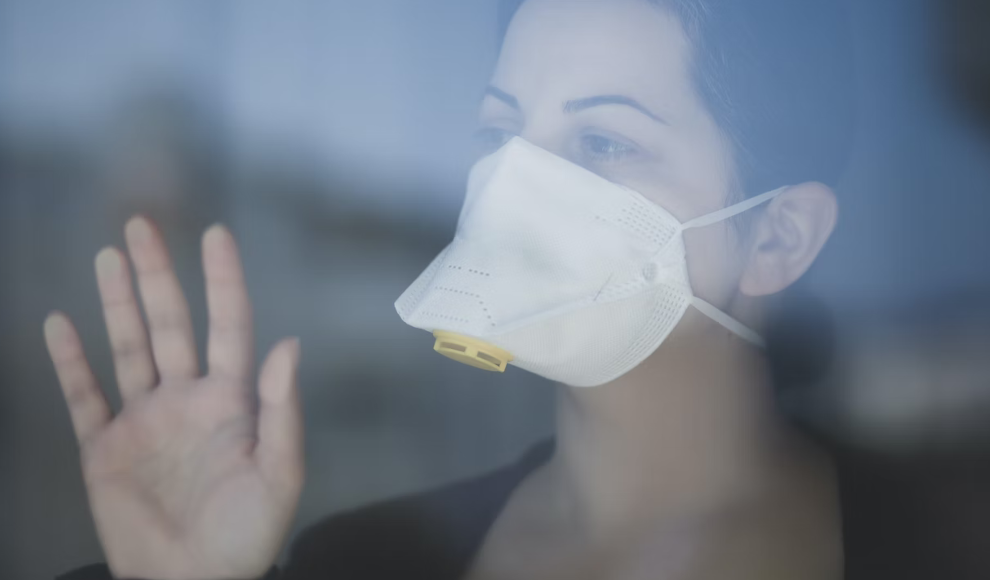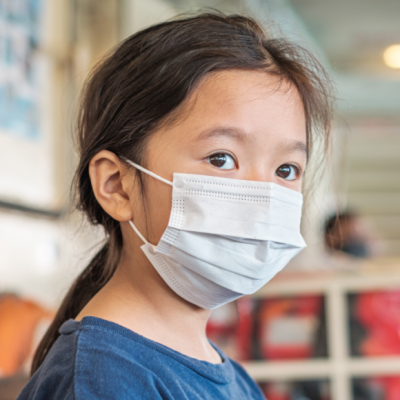Source: Chris Wymant, Daniela Bezemer, François Blanquart, Luca Ferretti, Astrid Gall, Matthew Hall, Tanya Golubchik, Margreet Bakker, Swee Hoe Ong, Lele Zhao, David Bonsall, Mariateresa de Cesare, George MacIntyre-Cockett, Lucie Abeler-Dörner, Jan Albert, Norbert Bannert, Jacques Fellay, M. Kate Grabowski, Barbara Gunsenheimer-Bartmeyer, Huldrych F. Günthard, Pia Kivelä, Roger D. Kouyos, Oliver Laeyendecker, Laurence Meyer, Kholoud Porter, Matti Ristola, Ard van Sighem, Ben Berkhout, Paul Kellam, Marion Cornelissen, Peter Reiss, Christophe Fraser, V. Aubert, M. Battegay, E. Bernasconi, J. Böni, D. L. Braun, H. C. Bucher, C. Burton-Jeangros, A. Calmy, M. Cavassini, G. Dollenmaier, M. Egger, L. Elzi, J. Fehr, J. Fellay, H. Furrer, C. A. Fux, M. Gorgievski, H. Günthard, D. Haerry, B. Hasse, H. H. Hirsch, M. Hoffmann, I. Hösli, C. Kahlert, L. Kaiser, O. Keiser, T. Klimkait, R. Kouyos, H. Kovari, B. Ledergerber, G. Martinetti, B. Martinez de Tejada, C. Marzolini, K. Metzner, N. Müller, D. Nadal, D. Nicca, G. Pantaleo, A. Rauch, S. Regenass, C. Rudin, F. Schöni-Affolter, P. Schmid, R. Speck, M. Stöckle, P. Tarr, A. Trkola, P. Vernazza, R. Weber, S. Yerly, M. van der Valk, S. E. Geerlings, A. Goorhuis, J. W. Hovius, B. Lempkes, F. J. B. Nellen, T. van der Poll, J. M. Prins, P. Reiss, M. van Vugt, W. J. Wiersinga, F. W. M. N. Wit, M. van Duinen, J. van Eden, A. Hazenberg, A. M. H. van Hes, F. J. J. Pijnappel, S. Y. Smalhout, A. M. Weijsenfeld, S. Jurriaans, N. K. T. Back, H. L. Zaaijer, B. Berkhout, M. T. E. Cornelissen, C. J. Schinkel, K. C. Wolthers, E. J. G. Peters, M. A. van Agtmael, R. S. Autar, M. Bomers, K. C. E. Sigaloff, M. Heitmuller, L. M. Laan, C. W. Ang, R. van Houdt, M. Jonges, T. W. Kuijpers, D. Pajkrt, H. J. Scherpbier, C. de Boer, A. van der Plas, M. van den Berge, A. Stegeman, S. Baas, L. Hage de Looff, A. Buiting, A. Reuwer, J. Veenemans, B. Wintermans, M. J. H. Pronk, H. S. M. Ammerlaan, D. N. J. van den Bersselaar, E. S. de Munnik, B. Deiman, A. R. Jansz, V. Scharnhorst, J. Tjhie, M. C. A. Wegdam, A. van Eeden, J. Nellen, W. Brokking, L. J. M. Elsenburg, H. Nobel, M. E. E. van Kasteren, M. A. H. Berrevoets, A. E. Brouwer, A. Adams, R. van Erve, B. A. F. M. de Kruijf-van de Wiel, S. Keelan-Phaf, B. van de Ven, B. van der Ven, A. G. M. Buiting, J. L. Murck, T. E. M. S. de Vries-Sluijs, H. I. Bax, E. C. M. van Gorp, N. C. de Jong-Peltenburg, M. de Mendonç̧a Melo, E. van Nood, J. L. Nouwen, B. J. A. Rijnders, C. Rokx, C. A. M. Schurink, L. Slobbe, A. Verbon, N. Bassant, J. E. A. van Beek, M. Vriesde, L. M. van Zonneveld, J. de Groot, C. A. B. Boucher, M. P. G. Koopmans, J. J. A. van Kampen, P. L. A. Fraaij, A. M. C. van Rossum, C. L. Vermont, L. C. van der Knaap, E. Visser, J. Branger, R. A. Douma, A. S. Cents-Bosma, C. J. H. M. Duijf-van de Ven, E. F. Schippers, C. van Nieuwkoop, J. M. van Ijperen, J. Geilings, G. van der Hut, N. D. van Burgel, E. M. S. Leyten, L. B. S. Gelinck, F. Mollema, S. Davids-Veldhuis, C. Tearno, G. S. Wildenbeest, E. Heikens, P. H. P. Groeneveld, J. W. Bouwhuis, A. J. J. Lammers, S. Kraan, A. G. W. van Hulzen, M. S. M. Kruiper, G. L. van der Bliek, P. C. J. Bor, S. B. Debast, G. H. J. Wagenvoort, F. P. Kroon, M. G. J. de Boer, H. Jolink, M. M. C. Lambregts, A. H. E. Roukens, H. Scheper, W. Dorama, N. van Holten, E. C. J. Claas, E. Wessels, J. G. den Hollander, R. El Moussaoui, K. Pogany, C. J. Brouwer, J. V. Smit, D. Struik-Kalkman, T. van Niekerk, O. Pontesilli, S. H. Lowe, A. M. L. Oude Lashof, D. Posthouwer, M. E. van Wolfswinkel, R. P. Ackens, K. Burgers, J. Schippers, B. Weijenberg-Maes, I. H. M. van Loo, T. R. A. Havenith, M. G. A. van Vonderen, L. M. Kampschreur, S. Faber, R. Steeman-Bouma, A. Al Moujahid, G. J. Kootstra, C. E. Delsing, M. van der Burg-van de Plas, L. Scheiberlich, W. Kortmann, G. van Twillert, R. Renckens, D. Ruiter-Pronk, F. A. van Truijen-Oud, J. W. T. Cohen Stuart, ER. Jansen, M. Hoogewerf, W. Rozemeijer, W. A. van der Reijden, J. C. Sinnige, K. Brinkman, G. E. L. van den Berk, W. L. Blok, K. D. Lettinga, M. de Regt, W. E. M. Schouten, J. E. Stalenhoef, J. Veenstra, S. M. E. Vrouenraets, H. Blaauw, G. F. Geerders, M. J. Kleene, M. Kok, M. Knapen, I. B. van der Meché, E. Mulder-Seeleman, A. J. M. Toonen, S. Wijnands, E. Wttewaal, D. Kwa, R. van Crevel, K. van Aerde, A. S. M. Dofferhoff, S. S. V. Henriet, H. J. M. ter Hofstede, J. Hoogerwerf, M. Keuter, O. Richel, M. Albers, K. J. T. Grintjes-Huisman, M. de Haan, M. Marneef, R. Strik-Albers, J. Rahamat-Langendoen, F. F. Stelma, D. Burger, E. H. Gisolf, R. J. Hassing, M. Claassen, G. ter Beest, P. H. M. van Bentum, N. Langebeek, R. Tiemessen, C. M. A. Swanink, S. F. L. van Lelyveld, R. Soetekouw, L. M. M. van der Prijt, J. van der Swaluw, N. Bermon, W. A. van der Reijden, R. Jansen, B. L. Herpers, D. Veenendaal, D. W. M. Verhagen, F. N. Lauw, M. C. van Broekhuizen, M. van Wijk, W. F. W. Bierman, M. Bakker, J. Kleinnijenhuis, E. Kloeze, A. Middel, D. F. Postma, E. H. Schölvinck, Y. Stienstra, A. R. Verhage, M. Wouthuyzen-Bakker, A. Boonstra, H. de Groot-de Jonge, P. A. van der Meulen, D. A. de Weerd, H. G. M. Niesters, C. C. van Leer-Buter, M. Knoester, A. I. M. Hoepelman, J. E. Arends, R. E. Barth, A. H. W. Bruns, P. M. Ellerbroek, T. Mudrikova, J. J. Oosterheert, E. M. Schadd, B. J. van Welzen, K. Aarsman, B. M. G. Griffioen-van Santen, I. de Kroon, M. van Berkel, C. S. A. M. van Rooijen, R. Schuurman, F. Verduyn-Lunel, A. M. J. Wensing, L. J. Bont, S. P. M. Geelen, Y. G. T. Loeffen, T. F. W. Wolfs, N. Nauta, E. O. W. Rooijakkers, H. Holtsema, R. Voigt, D. van de Wetering, A. Alberto, I. van der Meer, A. Rosingh, T. Halaby, S. Zaheri, A. C. Boyd, D. O. Bezemer, A. I. van Sighem, C. Smit, M. Hillebregt, A. de Jong, T. Woudstra, D. Bergsma, R. Meijering, L. van de Sande, T. Rutkens, S. van der Vliet, L. de Groot, M. van den Akker, Y. Bakker, A. El Berkaoui, M. Bezemer, N. Brétin, E. Djoechro, M. Groters, E. Kruijne, K. J. Lelivelt, C. Lodewijk, E. Lucas, L. Munjishvili, F. Paling, B. Peeck, C. Ree, R. Regtop, Y. Ruijs, M. Schoorl, P. Schnörr, A. Scheigrond, E. Tuijn, L. Veenenberg, K. M. Visser, E. C. Witte, Y. Ruijs, Maartje Van Frankenhuijsen, Thierry Allegre, Djamila Makhloufi, Jean-Michel Livrozet, Pierre Chiarello, Mathieu Godinot, Florence Brunel-Dalmas, Sylvie Gibert, Christian Trepo, Dominique Peyramond, Patrick Miailhes, Joseph Koffi, Valérie Thoirain, Corinne Brochier, Thomas Baudry, Sylvie Pailhes, Alain Lafeuillade, Gisèle Philip, Gilles Hittinger, Assi Assi, Véronique Lambry, Eric Rosenthal, Alissa Naqvi, Brigitte Dunais, Eric Cua, Christian Pradier, Jacques Durant, Aline Joulie, Denis Quinsat, Serge Tempesta, Isabelle Ravaux, Isabelle Poizot Martin, Olivia Faucher, Nicolas Cloarec, Hélène Champagne, Gilles Pichancourt, Philippe Morlat, Thierry Pistone, Fabrice Bonnet, Patrick Mercie, Isabelle Faure, Mojgan Hessamfar, Denis Malvy, Denis Lacoste, Marie-Carmen Pertusa, Marie-Anne Vandenhende, Noëlle Bernard, François Paccalin, Cédric Martell, Julien Roger-Schmelz, Marie-Catherine Receveur, Pierre Duffau, Denis Dondia, Emmanuel Ribeiro, Sabrina Caltado, Didier Neau, Michel Dupont, Hervé Dutronc, Frédéric Dauchy, Charles Cazanave, Marc-Olivier Vareil, Gaétane Wirth, Séverine Le Puil, Jean-Luc Pellegrin, Isabelle Raymond, Jean-François Viallard, Severin Chaigne de Lalande, Daniel Garipuy, Pierre Delobel, Martine Obadia, Lise Cuzin, Muriel Alvarez, Noemie Biezunski, Lydie Porte, Patrice Massip, Alexa Debard, Florence Balsarin, Myriam Lagarrigue, François Prevoteau du Clary, Christian Aquilina, Jacques Reynes, Vincent Baillat, Corinne Merle, Vincent Lemoing, Nadine Atoui, Alain Makinson, Jean Marc Jacquet, Christina Psomas, Christine Tramoni, Hugues Aumaitre, Mathieu Saada, Marie Medus, Martine Malet, Aurélia Eden, Ségolène Neuville, Milagros Ferreyra, Albert Sotto, Claudine Barbuat, Isabelle Rouanet, Didier Leureillard, Jean-Marc Mauboussin, Catherine Lechiche, Régine Donsesco, André Cabie, Sylvie Abel, Sandrine Pierre-Francois, Anne-Sophie Batala, Christophe Cerland, Camille Rangom, Nadine Theresine, Bruno Hoen, Isabelle Lamaury, Isabelle Fabre, Kinda Schepers, Elodie Curlier, Rachida Ouissa, Catherine Gaud, Carole Ricaud, Roland Rodet, Guillaume Wartel, Carmele Sautron, Geneviève Beck-Wirth, Catherine Michel, Charles Beck, Jean-Michel Halna, Jakub Kowalczyk, Meryem Benomar, Christine Drobacheff-Thiebaut, Catherine Chirouze, Jean-François Faucher, François Parcelier, Adeline Foltzer, Cécile Haffner-Mauvais, Mathieu Hustache Mathieu, Aurélie Proust, Lionel Piroth, Pascal Chavanet, Michel Duong, Marielle Buisson, Anne Waldner, Sophie Mahy, Sandrine Gohier, Delphine Croisier, Thierry May, Mikael Delestan, Marie Andre, Mahsa Mohseni Zadeh, Martin Martinot, Béatrice Rosolen, Anne Pachart, Benoît Martha, Noëlle Jeunet, David Rey, Christine Cheneau, Maria Partisani, Michèle Priester, Claudine Bernard-Henry, Marie-Laure Batard, Patricia Fischer, Jean-Luc Berger, Isabelle Kmiec, Olivier Robineau, Thomas Huleux, Faïza Ajana, Isabelle Alcaraz, Christophe Allienne, Véronique Baclet, Agnès Meybeck, Michel Valette, Nathalie Viget, Emmanuelle Aissi, Raphael Biekre, Pauline Cornavin, Dominique Merrien, Jean-Christophe Seghezzi, Moise Machado, Georges Diab, François Raffi, Bénédicte Bonnet, Clotilde Allavena, Olivier Grossi, Véronique Reliquet, Eric Billaud, Cecile Brunet, Sabelline Bouchez, Pascale Morineau-Le Houssine, Fabienne Sauser, David Boutoille, Michel Besnier, Hervé Hue, Nolwenn Hall, Delphine Brosseau, Faouzi Souala, Christian Michelet, Pierre Tattevin, Cédric Arvieux, Matthieu Revest, Helene Leroy, Jean-Marc Chapplain, Matthieu Dupont, Fabien Fily, Solène Patra-Delo, Céline Lefeuvre, Louis Bernard, Frédéric Bastides, Pascale Nau, Renaud Verdon, Arnaud de la Blanchardiere, Anne Martin, Philippe Feret, Loïk Geffray, Corinne Daniel, Jennifer Rohan, Pascale Fialaire, Jean Marie Chennebault, Valérie Rabier, Pierre Abgueguen, Sami Rehaiem, Odile Luycx, Mathilde Niault, Philippe Moreau, Yves Poinsignon, Marie Goussef, Virginie Mouton-Rioux, Dominique Houlbert, Sandrine Alvarez-Huve, Frédérique Barbe, Sophie Haret, Philippe Perre, Sophie Leantez-Nainville, Jean-Luc Esnault, Thomas Guimard, Isabelle Suaud, Jean-Jacques Girard, Véronique Simonet, Yasmine Debab, Jean-Luc Schmit, Christine Jacomet, Pierre Weinberck, Claire Genet, Pauline Pinet, Sophie Ducroix, Hélène Durox, Éric Denes, Bruno Abraham, Florence Gourdon, Odile Antoniotti, Jean-Michel Molina, Samuel Ferret, Caroline Lascoux-Combe, Matthieu Lafaurie, Nathalie Colin de Verdiere, Diane Ponscarme, Nathalie De Castro, Alexandre Aslan, Willy Rozenbaum, Claire Pintado, François Clavel, Olivier Taulera, Caroline Gatey, Anne-Lise Munier, Sandrine Gazaigne, Pauline Penot, Guillaume Conort, Nathalie Lerolle, Anne Leplatois, Stéphanie Balausine, Jeannine Delgado, Julie Timsit, Magda Tabet, Laurence Gerard, Pierre-Marie Girard, Odile Picard, Jürgen Tredup, Diane Bollens, Nadia Valin, Pauline Campa, Julie Bottero, Benedicte Lefebvre, Muriel Tourneur, Laurent Fonquernie, Charlotte Wemmert, Jean-Luc Lagneau, Yazdan Yazdanpanah, Bao Phung, Adriana Pinto, Dorothée Vallois, Ornella Cabras, Françoise Louni, Gilles Pialoux, Thomas Lyavanc, Valérie Berrebi, Julie Chas, Sophie Lenagat, Agathe Rami, Myriam Diemer, Maguy Parrinello, Audrey Depond, Dominique Salmon, Loïc Guillevin, Tassadit Tahi, Linda Belarbi, Pierre Loulergue, Olivier Zak Dit Zbar, Odile Launay, Benjamin Silbermann, Catherine Leport, Laura Alagna, Marie-Pierre Pietri, Anne Simon, Manuela Bonmarchand, Naouel Amirat, François Pichon, Myriam Kirstetter, Christine Katlama, Marc Antoine Valantin, Roland Tubiana, Fabienne Caby, Luminita Schneider, Nadine Ktorza, Ruxandra Calin, Audrey Merlet, Saadia Ben Abdallah, Laurence Weiss, Martin Buisson, Dominique Batisse, Marina Karmochine, Juliette Pavie, Catherine Minozzi, Didier Jayle, Philippe Castel, Jean Derouineau, Pascale Kousignan, Murielle Eliazevitch, Isabelle Pierre, Lio Collias, Jean-Paul Viard, Jacques Gilquin, Alain Sobel, Laurence Slama, Jade Ghosn, Blanka Hadacek, Nugyen Thu-Huyn, Lella Nait-Ighil, Agnes Cros, Aline Maignan, Claudine Duvivier, Paul Henri Consigny, Fanny Lanternier, Michka Shoai-Tehrani, Fatima Touam, Saadia Jerbi, Loïc Bodard, Corinne Jung, Cécile Goujard, Yann Quertainmont, Martin Duracinsky, Olivier Segeral, Arnaud Blanc, Delphine Peretti, Antoine Cheret, Christelle Chantalat, Marie Josée Dulucq, Yves Levy, Jean Daniel Lelievre, Anne Sophie Lascaux, Cécile Dumont, François Boue, Véronique Chambrin, Sophie Abgrall, Imad Kansau, Mariem Raho-Moussa, Pierre De Truchis, Aurélien Dinh, Benjamin Davido, Dhiba Marigot, Huguette Berthe, Alain Devidas, Pierre Chevojon, Amélie Chabrol, Nouara Agher, Yvon Lemercier, Fabrice Chaix, Isabelle Turpault, Olivier Bouchaud, Patricia Honore, Elisabeth Rouveix, Evelyne Reimann, Alix Greder Belan, Claire Godin Collet, Safia Souak, Emmanuel Mortier, Martine Bloch, Anne-Marie Simonpoli, Véronique Manceron, Isabelle Cahitte, Emmanuel Hiraux, Erik Lafon, François Cordonnier, Ai-feng Zeng, David Zucman, Catherine Majerholc, Dominique Bornarel, Agnès Uludag, Justine Gellen-Dautremer, Agnès Lefort, Christine Bazin, Vincent Daneluzzi, Juliette Gerbe, Vincent Jeantils, Mélissa Coupard, Olivier Patey, Jonas Bantsimba, Sophie Delllion, Pauline Caraux Paz, Benoit Cazenave, Laurent Richier, Valérie Garrait, Isabelle Delacroix, Brigitte Elharrar, Daniel Vittecoq, Claudine Bolliot, Annie Lepretre, Philippe Genet, Virginie Masse, Véronique Perrone, Jean-Luc Boussard, Patricia Chardon, Eric Froguel, Philippe Simon, Sylvie Tassi, Véronique Avettand Fenoel, Francis Barin, Christine Bourgeois, Fanny Cardon, Marie-Laure Chaix, Jean François Delfraissy, Asma Essat, Hugues Fischer, Camille Lecuroux, Laurence Meyer, Ventzislava Petrov-Sanchez, Christine Rouzioux, Asier Saez-Cirion, Rémonie Seng, Kristin Kuldanek, Scott Mullaney, Carmel Young, Antonella Zucchetti, Margaret-Ann Bevan, Sinead McKernan, Emily Wandolo, Celia Richardson, Elaney Youssef, Pippa Green, Sue Faulkner, Rebecca Faville, Sandra Herman, Christine Care, Helen Blackman, Katharine Bellenger, Keith Fairbrother, Andrew Phillips, Abdel Babiker, Valerie Delpech, Sarah Fidler, Mindy Clarke, Julie Fox, Richard Gilson, David Goldberg, David Hawkins, Anne Johnson, Margaret Johnson, Ken McLean, Eleni Nastouli, Frank Post, N. Kennedy, J. Pritchard, U. Andrady, N. Rajda, C. Donnelly, S. McKernan, S. Drake, G. Gilleran, D. White, J. Ross, J. Harding, R. Faville, J. Sweeney, P. Flegg, S. Toomer, H. Wilding, R. Woodward, G. Dean, C. Richardson, N. Perry, M. Gompels, L. Jennings, D. Bansaal, M. Browing, L. Connolly, B. Stanley, S. Estreich, A. Magdy, C. O’Mahony, P. Fraser, S. P. R Jebakumar, L. David, R. Mette, H. Summerfield, M. Evans, C. White, R. Robertson, C. Lean, S. Morris, A. Winter, S. Faulkner, B. Goorney, L. Howard, I. Fairley, C. Stemp, L. Short, M. Gomez, F. Young, M. Roberts, S. Green, K. Sivakumar, J. Minton, A. Siminoni, J. Calderwood, D. Greenhough, C. DeSouza, Lisa Muthern, C. Orkin, S. Murphy, M. Truvedi, K. McLean, D. Hawkins, C. Higgs, A. Moyes, S. Antonucci, S. McCormack, W. Lynn, M. Bevan, J. Fox, A. Teague, J. Anderson, S. Mguni, F. Post, L. Campbell, C. Mazhude, H. Russell, R. Gilson, G. Carrick, J. Ainsworth, A. Waters, P. Byrne, M. Johnson, S. Fidler, K. Kuldanek, S. Mullaney, V. Lawlor, R. Melville, A. Sukthankar, S. Thorpe, C. Murphy, E. Wilkins, S. Ahmad, P. Green, S. Tayal, E. Ong, J. Meaden, L. Riddell, D. Loay, K. Peacock, H. Blackman, V. Harindra, A. M. Saeed, S. Allen, U. Natarajan, O. Williams, H. Lacey, C. Care, C. Bowman, S. Herman, S. V. Devendra, J. Wither, A. Bridgwood, G. Singh, S. Bushby, D. Kellock, S. Young, G. Rooney, B. Snart, J. Currie, M. Fitzgerald, J. Arumainayyagam, S. Chandramani, S. Rajamanoharan, T. Robinson, B. Taylor, C. Brewer, Christoph Mayr, Wolfgang Schmidt, Andrea Speidel, Frank Strohbach, Keikawus Arastéh, Christiane Cordes, Manfred Stündel, Jörg Claus, Axel Baumgarten, Andreas Carganico, Patrick Ingiliz, Stephan Dupke, Matthias Freiwald, Michael Rausch, Arend Moll, Dorothea Schleehauf, Bettina Hintsche, Gerd Klausen, Heiko Jessen, Arne Jessen, Siegfried Köppe, Peter Kreckel, Dietmar Schranz, Klaus Fischer, Hubert Schulbin, Miriam Speer, Tobias Glaunsinger, Thomas Wicke, Bernhard Bieniek, Heribert Hillenbrand, Frank Schlote, Elke Lauenroth-Mai, Christoph Schuler, Dirk Schürmann, Hans Wesselmann, Norbert Brockmeyer, Peter Gehring, Dirk Schmalöer, Martin Hower, Petra Spornraft-Ragaller, Dieter Häussinger, Stefan Reuter, Stefan Esser, Rudolf Markus, Burkhard Kreft, Dirk Berzow, Andreas Christl, Andreas Meyer, Andreas Plettenberg, Albrecht Stoehr, Katrin Graefe, Thore Lorenzen, Axel Adam, Knut Schewe, Lutwin Weitner, Stefan Fenske, Stefan Hansen, Hans-Jürgen Stellbrink, Dorothea Wiemer, Sandra Hertling, Reinhold Schmidt, Peter Arbter, Bernd Claus, Peter Galle, Hans Jäger, Eva Jä̈gel-Guedes, Nils Postel, Monika Fröschl, Christoph Spinner, Johannes Bogner, Bernd Salzberger, Jürgen Schölmerich, Franz Audebert, Ties Marquardt, Andreas Schaffert, Eiko Schnaitmann, Andreas Trein, Bernhard Frietsch, Marcus Müller, Albrecht Ulmer, Barbara Detering-Hübner, Peter Kern, Franz Schubert, Günther Dehn, Maria Schreiber, Cengiz Güler, Barbara Gunsenheimer-Bartmeyer, Daniel Schmidt, Karolin Meixenberger, Norbert Bannert, , (2022). A highly virulent variant of HIV-1 circulating in the Netherlands. Science, 375(6580), 540-545.










